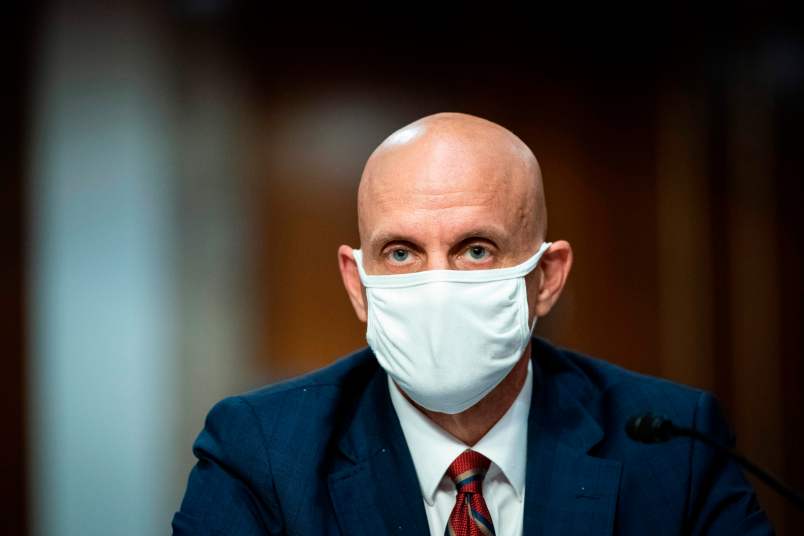The Food and Drug Administration is attempting to tighten the standards for a COVID-19 vaccine, but the plan appears to have run into a political blockade at the White House.
Experts and former regulatory officials told TPM that any move by the FDA to issue guidelines toughening standards for an emergency vaccine approval were likely running up against two recent Trump administration policies designed to gum up the works in an administration that’s willing to contort everything to its short-term political advantage.
FDA officials reportedly began to draft guidance this month that would heighten the requirements for emergency approval of a COVID-19 vaccine, potentially extending the timeline for such an approval by months. Notably, that would put approval after the 2020 election — a date the President has frequently touted for a vaccine.
The tightened guidelines could serve to prevent the FDA from sacrificing its credibility on a pre-election vaccine that Trump has pressured the agency to approve. New guidelines would also provide a useful way of gauging how regulators are weighing the balance between the urgency of approving a vaccine to combat the spread of COVID-19 and the need to determine that any new shot works safely.
The guidelines were already reportedly under review by the White House’s Office of Management and Budget this week. But on Wednesday, President Trump threw more gasoline on the already-raging fire of vaccine politicization by suggesting that he wouldn’t approve the guidelines.
“That has to be approved by the White House,” Trump said of the FDA standards. “That sounds like a political move.”
But as with many things in Trumpworld, it’s far from clear what is bluster and what is reality.
“I’m not really interested in what the White House’s opinion is, and it should not have an opinion about this — this should be an entirely professional decision made within the FDA,” said Dr. William Schaffner, professor of preventive medicine and infectious disease at Vanderbilt University Medical School.
Last year, the Trump administration required the FDA to submit all proposed guidance changes to the OMB’s Office of Information and Regulatory Affairs to determine whether it’s a “major” change that would then require congressional review.
On top of that, HHS Secretary Alex Azar issued a memo, reported last week by the New York Times, which arrogates decision-making power over new FDA regulations into his own hands.
The result is that top political officials have a much deeper reach into the regulatory process than they did previously, with the OMB having a much larger role.
Secretary Azar said on Thursday morning that “what the FDA is looking at now is additional guidelines for the manufacturers, who might come in for emergency approval.”
Watch @SavannahGuthire’s full interview with @SecAzar on growing coronavirus concerns and the timeline for a vaccine. pic.twitter.com/jnzXaEPNvg
— TODAY (@TODAYshow) September 24, 2020
The guidance would reportedly ask vaccine manufacturers who are seeking an emergency authorization to “follow participants in late-stage clinical trials for a median of at least two months, starting after they receive a second vaccine shot” and would mandate that there be at least five severe cases of COVID-19 in the vaccine trial’s placebo group, as well as some COVID-19 cases in older people, before the FDA issues emergency approval.
Schaffner told TPM that though the guidelines would not “raise the bar substantially higher,” they would “make it less likely that any decision would be impetuous.”
The guidance’s review by OMB, and Trump’s remarks about blocking it, come after multiple instances during the Trump administration in which the office has served explicitly political ends.
Most famously, OMB played a key role in withholding $250 million in military aid to the Ukrainian government last year.
The office refusing to approve the tighter COVID-19 vaccine regulations would, in light of President Trump’s comments Wednesday, come as further evidence of Trump seeking a pre-election vaccine before safety and efficacy data was available to show whether and how the shot works.
“The medical community is as nervous as the general population is about the precipitous decision-making here,” Schaffner remarked.






